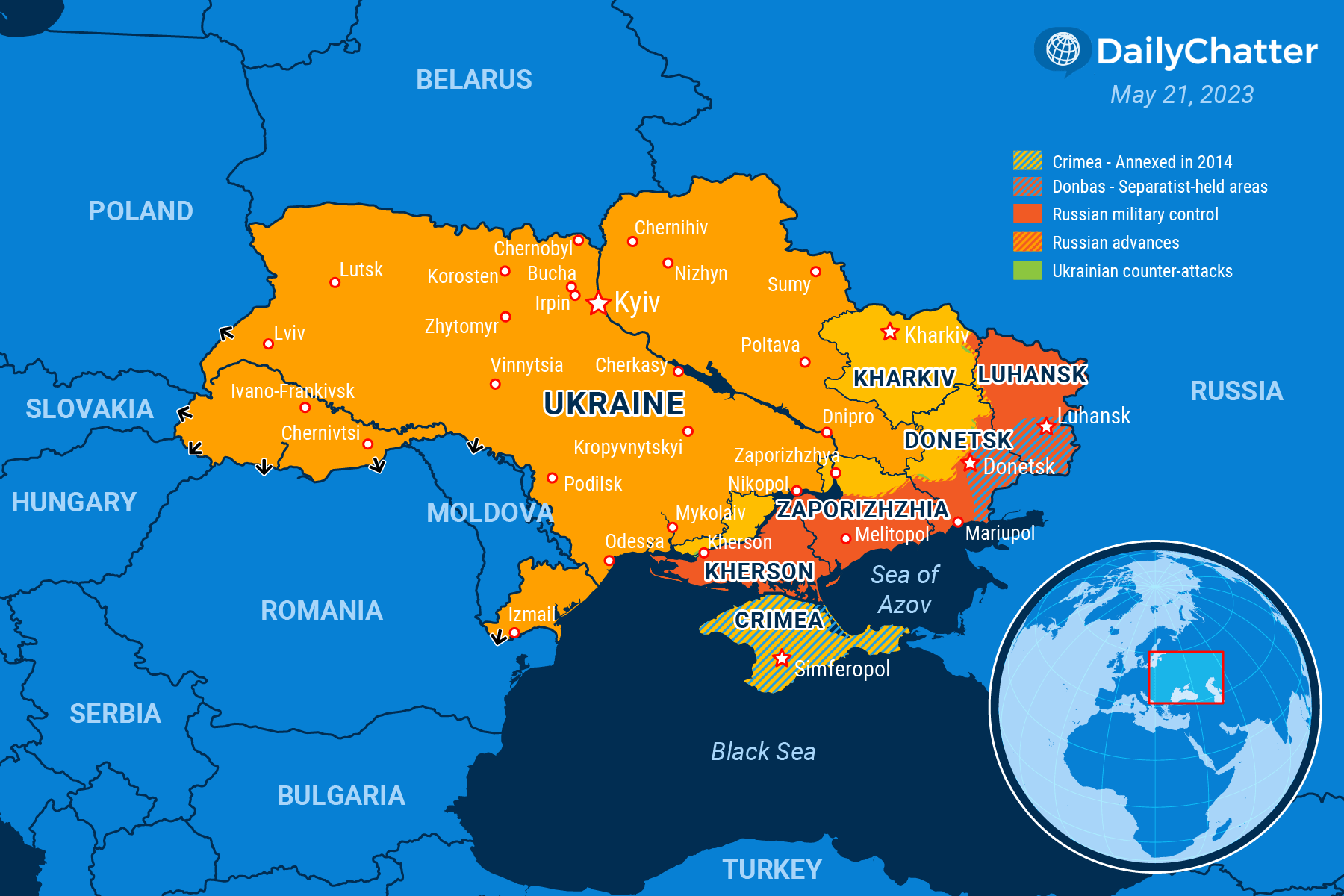Need to Know
August 14, 2023The War on Culture
Ukraine

|
Listen to Today's Edition
|
As Ukrainian soldiers dig in to make advances on the battlefield in what many say is a stalled offensive, another front in the war has been more successful: the war on Russia’s cultural legacy.
It’s an offensive years in the making.
For most of its existence as a nation, Russian language and culture have co-existed with Ukrainian. Now, Putin’s invasion of Ukraine on the pretext of saving Russian culture from annihilation is the very thing that has pushed Ukrainians to make a concerted effort to erase it.
That means toppling monuments to changing street names to eliminating the use of the Russian language.
For example, the Motherland Monument, which has towered over Kyiv since 1981 with its 335-foot statue of a woman holding a sword and shield, recently got a makeover. Its shield’s Soviet hammer and sickle motif was replaced with a Ukrainian trident, a symbol of the country dating back more than a millennium, reported CNBC.
That’s only the latest landmark to be targeted with hammers, chisels and paint brushes: This map with the header, “decolonize Ukraine,” shows the scale of the effort. Hundreds of green points on the map show landmarks that have already been “dismantled.” Yellow and red points, meanwhile, mark those to come.
A form urges fellow Ukrainians to inform the organization of landmarks they missed: “Let’s finish the process once and for all,” the organization writes.
That is no easy task because tens of thousands of physical symbols of Russia dot Ukraine’s urban landscapes including statues, mosaics embedded in buildings and bas-reliefs in facades.
Some worry that the effort will erase history or just interesting art: “War and works of art are not always linked,” Anton Glazkov, a 27-year-old teacher, told France24.
Still, physical landmarks are the easy part, others say.
Late last month, Ukrainian President Volodymyr Zelenskyy signed a law that moves the Christmas Day holiday from Jan. 7 – the day celebrated as Christmas by the Russian Orthodox Church – to Dec. 25, Politico reported.
The most difficult front is the Russian language itself. It has already been banned on local radio stations, with bands rereleasing their hits songs in Ukrainian. Russian books are being purged or replaced by Ukrainian editions and Russian courses are out from Ukraine’s national school curricula. And the government recently passed a law requiring Ukrainian skills for citizenship and all place names to be in Ukrainian, the New York Times reported.
The efforts to erase all-things-Russian are not new but date back to 2014 when the pro-democracy pro-West Maidan Revolution led to the ouster of pro-Russian President Viktor Yanukovych. Then, demonstrators tore down statues of Lenin and other Soviet leaders as parliament enacted the law banning them, the Wall Street Journal noted.
From then on, following Putin’s annexation of Ukrainian Crimea and its proxy war in the east of Ukraine, efforts intensified. Still, Ukrainian leaders, including President Zelenskyy were mindful that almost one-third of the country’s pre-war population was Russian-speaking including himself, and that some of them felt like second-class citizens.
Now, even native Russian speakers want to purge themselves of Russian.
“For many people, it has become impossible to speak Russian because it is the language of the enemy,” Iryna Pobidash, an associate professor of linguistics at Igor Sikorsky Polytechnic Institute in Kyiv, told the Washington Post. “Russian is now a marker of everything that has happened: a marker of pain and tragedy.”
In the far eastern predominantly Russian-speaking Kharkiv, people take Ukrainian classes and slowly abandon their language.
“…when I speak Russian, inside myself I am embarrassed that I speak the language of the enemy in public…this is a very personal feeling,” Liubov Pavliuk, told the Post, adding that she stopped listening to Russian music or watching Russian TV.
But she said she struggles: “Sometimes I lack the words…”
Not already a subscriber?
If you would like to receive DailyChatter directly to your inbox each morning, subscribe below with a free two-week trial.
Support journalism that’s independent, non-partisan, and fair.
If you are a student or faculty with a valid school email, you can sign up for a FREE student subscription or faculty subscription.
Questions? Write to us at hello@dailychatter.com.

